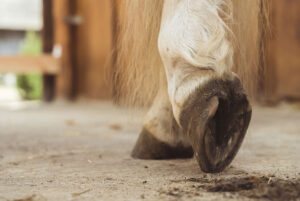Researchers Examine Horses’ Social Statuses
While horses might not be on Facebook just yet, they do have their own kind of “social network,” says one French equine behavior researcher. The resulting relationships are solidly structured and highly dependent on the particular characteristics of the individuals in the group.
Dominant horses, for example, are typically older, larger, and less fearful than other horses in the group, said Mathilde Valenchon, PhD, of the Ecology, Physiology and Ethology Department at the French National Centre for Scientific Research, in Strasbourg, France.
But “central” horses—those that tend to create multiple “friendly” relationships within the herd—tend to be (perhaps obviously) more gregarious and sociable, she said.
“Our studies on different groups of horses in seminatural conditions indicate that personality differences do matter in developing the structure of a group,” Valenchon said. She presented her findings at the 2015 French Equine Ethology Day held April 9 in Saumur
Create a free account with TheHorse.com to view this content.
TheHorse.com is home to thousands of free articles about horse health care. In order to access some of our exclusive free content, you must be signed into TheHorse.com.
Start your free account today!
Already have an account?
and continue reading.

Related Articles
Stay on top of the most recent Horse Health news with


















